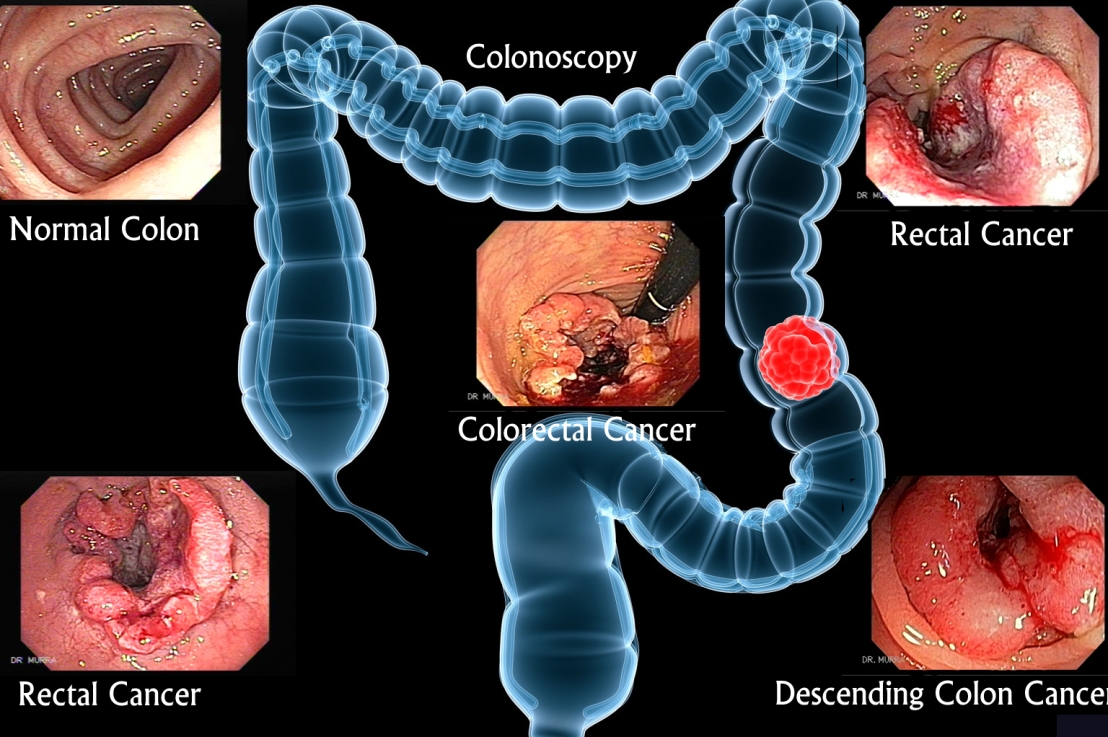Colorectal cancer provides one well-studied example of how a tumor suppressor can be identified and its role in tumor growth determined. Colorectal cancer arises from the epithelium lining the colon and rectum; most cases are seen in old people and do not have any discernible hereditary cause.
A small proportion of cases, however, occur in families that are exceptionally prone to the disease and show an unusually early onset. In one set of such “predisposed” families, the affected individuals develop colorectal cancer in early adult life, and the onset their disease is foreshadowed by the development of hundreds or thousands of little tumors, called polyps, in the epithelial lining of the colon and rectum.
By studying these families, investigators traced the development of the polyps to a deletion or inactivation of a tumor suppressor gene called APC – for Adenomatouus Polyposiss Coli. (Note that the protein encoded by this gene is different from the anaphase-promoting complex, also abbreviated APC). Affected individuals inherit one mutant copy is enough for normal behavior, all the cells of these individuals are only one mutational step away from total loss of the gene’s function (as compared to two steps away for a person who inherits two normal copies of the gene). The individual tumors arise from cells that have undergone a somatic mutation that inactivates the remaining good copy. Because the number of new mutations required is smaller, the disease strikes these individuals at an earlier age.
But what about the great majority of colorectal cancer patients, who have inherited two good copies pf APC and do not have the hereditary condition or any significant family history of cancer? When their tumors are analyzed, it turns out that in more than 60% of cases, although both copies of APC are present in the adjacent normal tissues, the tumor cells themselves have lost or inactivated both copies of this gene, presumably through two independent somatic mutations.
All these findings clearly identify APC as a tumor suppressor gene, and knowing its sequence and mutant phenotype, one can begin to decipher how its loss helps to initiate the development of cancer. As explained in “How we know”, the APC gene was found to encode an inhibitory protein that normally restricts the activation of the Wnt signaling pathway, which is involved in stimulating cell proliferation in the crypts og the gut lining, as described earlier. When APC is lost, the pathways is hyperactive and epithelial cells proliferate to excess, generating a polyp. Within this growing mass of tissue, further mutations occur, sometimes resulting in invasive cancer.
Figure. Colorectal cancer often begins with loss of the tumor suppressor gene APC, leading to growth of a polyp.
(A) Thousands of small polyps, and a few much larger ones, are seen in the lining of the colon of a patient with an inherited APC mutation (whereas individuals without an APC mutation might have one or two polyps). Through further mutations, some of these polyps will progress to become invasive cancers, unless the tissue is removed surgically.
(B) Cross section of one such polyp; note the excessive quantities of deeply infolded epithelium, corresponding to crypts full of abnormal, proliferating cells.
A, courtesy of John Northover and Cancer Research UK; B, courtesy of Anne Campbell.
Figure. A polyp in the epithelial lining of the colon or rectum, caused by loss of the APC gene, progress to cancer by accumulation of further mutations.
The diagram shows a sequence of mutations that might underlie a typical case of colorectal cancer. After the initial mutation, all subsequent mutations occur randomly in a single cell that had already acquired the previous mutations. A sequence of events such as that shown here would usually be spread over 10 to 20 years or more. Though most colorectal cancers are thought to begin with loss of the APC tumor suppressor gene, the subsequent sequence of mutations is quite variable; indeed, many polyps never progress to cancer.
Retype from Essential Cell biology chapter 20, p 719-720
